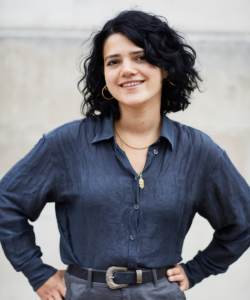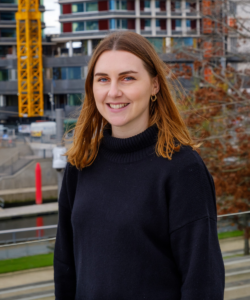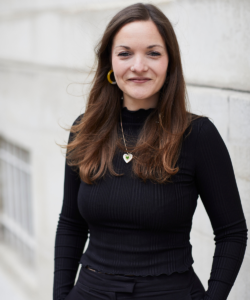Modelling place-based & systems change evaluation
Senior Project Manager, Jonathan Price shares feedback from place-based systemic change community members about our new model for evaluating long-term, place-based and systems change programmes.
On 25 October, we were excited to hear feedback and reflections from our community members about our new model for evaluating long-term, place-based and systems change programmes.
The meeting attracted our largest ever number of participants, which suggests that this is a priority across the membership of philanthropic foundations, charities and local authorities.
Indeed, we have seen growing appetite for using place-based and systems change approaches to tackle the root causes of complex issues. The ingredients of these approaches – long term timeframes, multi-sector collaboration, sustained resource commitment – present challenges for evaluation and learning.
To persuade funders or commissioners to invest in place-based and systems change, evidence and insight are crucial.
The solution to the challenges of place-based & systems change evaluation
Lily O’Flynn, Renaisi’s Principal Consultant for Place-based Evaluations & Learning Partnerships, presented the model which is informed by our work across 70 places in the last 3 years and is adapted from Clear Horizon’s model.

The graphic plots the stages of place and systems change over a ten-year timeline.
The model incorporates both developmental and ‘traditional’ monitoring, evaluation and learning practice to provide a robust and proportionate method of building the evidence base for place-based systems change.
It is anchored in 5 key principles, follows 5 broad steps, and takes us through 5 stages of change:
- 5 Principles: the model is theory-driven, starting with a collective vision for (and theory of) change; it is participatory and inclusive, delivered with community and not done to it; it is proportionate, focusing in on what matters; it takes a developmental approach, learning and iterating in real time; and it is realist, aiming to understand what works and why.
- 5 Steps: the process starts with a co-designed theory of change; then data is gathered against outcomes and mechanisms of change; next a learning framework structures continuous reflection and adaptation; fourth, it uses contribution analysis to find emerging links between the initiative and outcomes based on data that is been collected; and finally, it tests causal links between the outcomes and the initiative.
- 5 Stages of change: the model guides us from a starting point of building foundations on an understanding of the context; through the delivery phase of place-based systems working; into the phase of seeing changes in places; followed by changes to systems; and finally, sustained changes across the community.
If you’d like to know more you can read this or watch Lily’s video explaining the model.
Feedback from our community
During our meeting, we discussed the opportunities and challenges of implementing the model. We also talked about broader trends in how organisations approach evaluation and learning.
Several participants spoke about a movement away from ‘traditional’ monitoring, evaluation and learning models towards developmental ways of working and learning. They also talked about moving from narrow lines of inquiry to broader ones. Some noted the challenges of managing expectations during the transition and building trust in something new.
Community members reflected on what organisations need to embrace place-based systems change evaluation. Their ideas can be clustered into two overarching themes:
The need for funders to let go
Community members recognised the need for significant, long-term resource investments in programmes and their evaluations, greater risk appetite and patience for impact to be seen.
They spoke about the importance of funder-grantee relationships based on trust, flexibility and deep listening.
A shift in the culture of evaluation and learning
Community members identified several ingredients of this shift, including:
- taking qualitative methods seriously;
- moving from attribution to contribution;
- and valuing different forms of lived, learnt and embodied knowledge.
Crucially, members talked about a move towards more openness to discovering how change happens, identifying and challenging our assumptions, and embracing this change confidently.
Because it is both developmental and robust, our hope is that Renaisi’s new model for evaluating place-based and systems change programmes will support a mindset shift in the culture of evaluation and learning while enabling funders to trust in these approaches.
If you’d like to learn more about the model or talk to us about using it for your programmes, please contact our Place-based & Systems Change Team.
Meet the team
Principal Consultant for Place-based Evaluation & Learning (on parental leave mid-November 23 – September 24)











